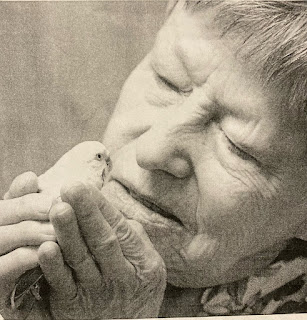The
philosopher Susanne Langer said, “If we would have new knowledge, we must get
us a whole world of new questions.” This insight certainly applied to our
desire to know more about God, and with the birth of Jesus, new questions arise
within us. Why did God choose a young peasant woman to be the mother of his
son? Why was he born in a stable, of all places? Why were shepherds the first to
be told about his birth?
These
circumstances give us new knowledge about God:
1.
To
further his plans, God uses those who are unlikely and overlooked, such as
Mary, who had no status in her society because she was young, a woman, and a
peasant. As Susan Quaintance, OSB, notes, “No
one is paying attention. And that is God’s secret weapon…. I am called to trust
that when Love is born in the world, it is through tiny openings, against
impossible odds, with nothing but grace to cling to.”
2.
God
wanted to be poor at birth and thus was born in the humblest of circumstances. Catherine
Doherty observes, “He came into the world stark naked, as every child of woman
comes froth from the womb. God loved poverty unto nakedness. This means that he
made a total surrender, a total commitment to love. It had to be this way, if
it were ever to lead to His Resurrection, and to ours. Don’t you think so?”
3.
Shepherds
were observant by nature; they had to be, to protect their sheep. Therefore, the
glory of the birth of Emmanuel was first revealed to people who were awake and
paying attention.
Our
questions, then, lead us to appreciate and trust in tiny openings and grace.
They lead us to understand the importance of the total commitment to love that
is represented by the life of poverty that is chosen by God. They affirm the
importance of staying awake and paying attention in our own lives.
Like
Mary, we ask questions, and as we ponder them in our hearts, they lead us
closer to an understanding of the workings of God’s own heart.








